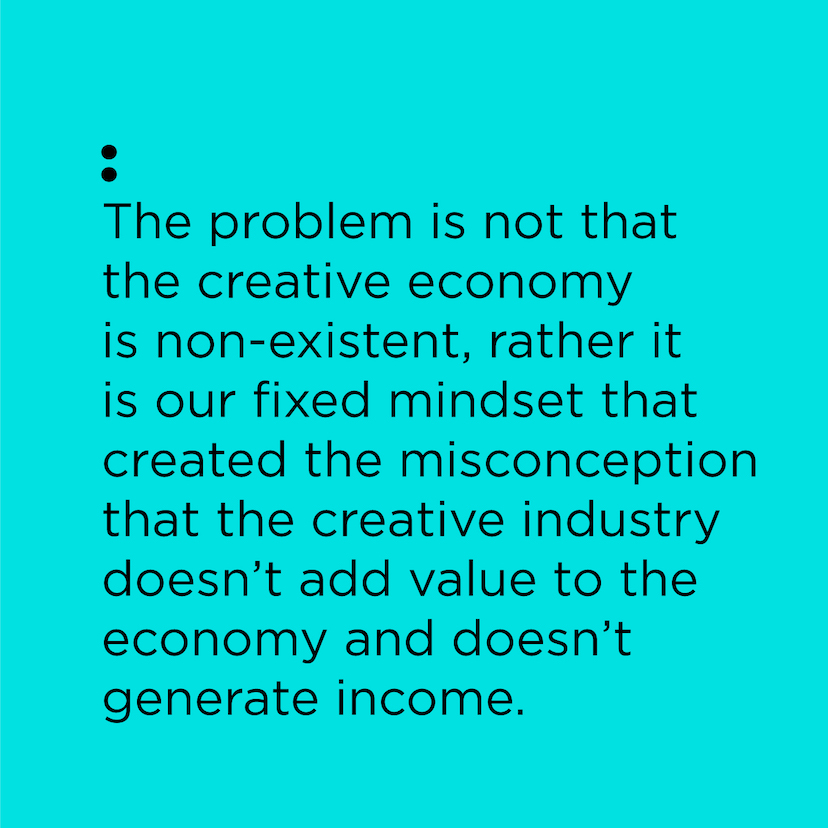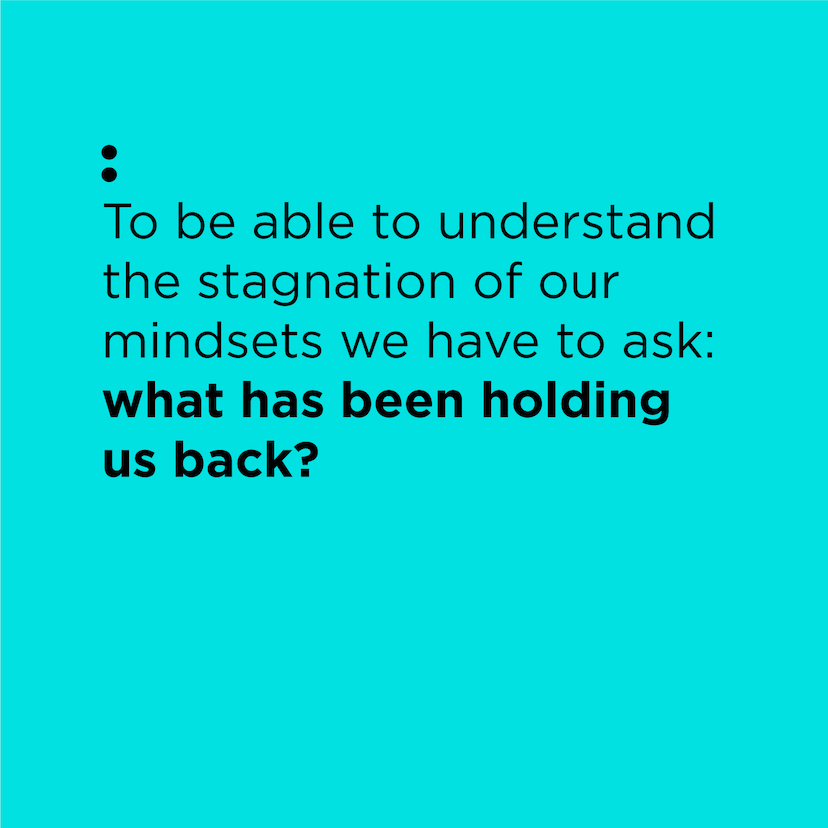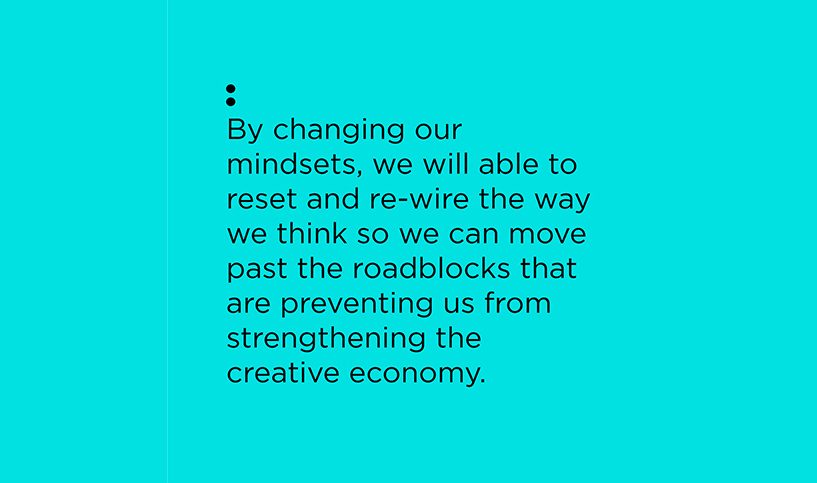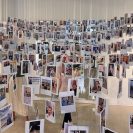Our last issue had some big and exciting news: we announced the Nuqat 2019 Regional conference, and all of the fun developments we can look forward to this year. This installment of Nuqat Insights, however, clearly maps out the organization’s journey since the 2016 conference and leading up to November of this year.
A break from the conference enabled Nuqat to travel
After the 2016 conference, “Powering the Creative Economy”, Nuqat broke the tradition of hosting an annual week-long conference in Kuwait, in search of answers that were raised during the discussion. The last conference aimed at looking for ways that the human mind can contribute to new innovations that will shift the economy and move away from being oil dependent. The creative economy encompasses creativity, culture, technology, interactive and interdisciplinary learning.
First, Nuqat looked for those solutions in Kuwait; then in 2017 they took the discussion abroad to seven different Middle Eastern cities, Doha, Dubai, Abu Dhabi, Muscat, Manama, Amman and Beirut, with the hope of understanding how Nuqat can help strengthen the creative economy.
Nuqat initiated the discussions in these cities in a roundtable format, entitled ‘Exploration Sessions’ due to their explorative nature, to understand and overcome the issues that hinder the development of the creative economy. These sessions allowed academics, creatives, investors and government representatives to come together in one space to identify multi-dimensional solutions to these multifaceted problems.
While Lebanon is mainly a service-based economy and Kuwait is an oil-based economy, Nuqat found similarities in both cities, which was also a trend throughout the rest of the cities that they visited. The overarching theme that encompassed all the cities was that there needs to be a collective re-thinking, re- imagining and re-creating of mindsets that have been shaped by personal, social and structural obstacles.
Taking time off and traveling allowed Nuqat to grow the community, especially outside Kuwait, to bring in new perspectives and viewpoints into the discussion. We found that many of the issues that were being discussed, whether it was in Muscat or Doha, transcended borders thus broadening the conversation. This is why in this year’s conference, Nuqat is adamant on having a regional reach.
While the main part of the conference, talks, workshops and entertainment, will be physically happening in Kuwait, Nuqat will also be collaborating with partners outside Kuwait. This is where the regional
aspect comes into play. Not only will the speakers be from all over the region, but Nuqat will also be engaging with the region through various activities, talks and other events to allow for participation which is vital to overcome conceived barriers, especially since there is a shared struggle.

2019 conference, inspired by the tour
In 2016, Nuqat gained an understanding of why we need a creative economy. Then between 2017 and 2018 they tackled the question: What are the reasons for lacking a developed creative economy. So where are we today?
The upcoming Nuqat 2019 Regional conference, taking place from November 20th-29th in Kuwait City, will build on their findings from the tour to understand why we need to change our mindsets, where we can go if we do change our mindsets and how we can realistically get there. By changing our mindsets, we will able to reset and re-wire the way we think so we can move past the roadblocks that are preventing us from strengthening the creative economy.
Misconceptions about the creative economy
To clarify, the creative economy is not non-existent in the Middle East; according to a study that was done by UNESCO and EY (formerly known as Ernst & Young) in 2015, the creative industry in the Middle East generates about $58 billion in revenue and employs around 2.4 million people. The problem is not that the creative economy is non-existent, rather it is our fixed mindset that created the misconception that the creative industry doesn’t add value to the economy and doesn’t generate income. During the conference, Nuqat hopes to unpack our mindset in order to understand why have we taken the creative economy for granted and how we can move ahead.
During a discussion panel called “Strengthening the Creative Industry in Kuwait” at the 2016 conference, Simona Maccagni, pointed out that the creative industry in Kuwait is one of the largest industries after oil. A World Bank study found this to be true, concluding that the creative industry contributes to 7% of the global GDP and is expected to grow 10% annually. “The consultancy group McKinsey sees the Middle East and North Africa (MENA) as [a] region [is] where the industry is currently growing most” (The World Bank, January 2017).
So if the creative industry is generating millions, creating jobs and contributing to the economy, as seen in Kuwait and across the region with varying degrees, why is it perceived with such low importance?
One reason is that the creative industry is seen as a separate entity that is focused on culture and arts, without seeing the value it adds to education and development. Creating this separation has established a mindset that sees each industry as an isolated branch that operates on its own. By doing this there is bound to be the introduction of hierarchy where one industry is seen as more important than another. This also feeds the misconception that the creative industry doesn’t contribute to the economy.
In her talk, Cultivating the Creative Economy, Noura Al Kaabi pointed out that the creative economy should not be thought of as a space only for creatives rather a space where creativity flourishes because of people that believe in creativity. With that being said, to achieve this sense of collaboration we have to change the way we look at the creative industry in relation to other industries.

Obstacles that constrain us
To be able to understand the stagnation of our mindsets we have to ask: what has been holding us back? Looking at it in multiple layers, allows us to unpack the obstacles that we face personally, socially and structurally.
The initial layer we have to overcome is our personal barriers, which will help us understand how we can grow as individuals, focusing on embracing self-compassion and the importance of emotional intelligence. The second layer is on a social level, where collectively as a society we have to overcome the cultural barriers that are tying us down and allowing the fear of failure to conquer us. Finally, the last obstacle, which some might say is the hardest to overcome being the structural barriers, which includes but is not limited to government institutions, policies and our physical environment.
Sofana Dahlan during a discussion panel, “Does Passion Need a License”, discussed the obstacles that censorship creates in regards to the creative economy. Censorship is a filter created by society, education and customs that dictate how we think, what we say and how we say it. As citizens and organizations, our duty is to educate people and the society by reshaping their mindsets about the importance of creativity. This should be considered in terms of how and when to set creativity free and when it is necessary to curb it for the sake of creating balance in a society. Rewiring mindsets doesn’t mean to completely get rid of tradition, but rather it is about overcoming the censorship that holds us back from producing and creating.
To be able to move beyond the limitations we need to critique the current situation and understand how we got there to be able to come up with valuable solutions to move forward. Each one of these layers depends on collaboration. Whether it be working within oneself, a community or the government, a change needs to happen in the way we think.
Nuqat are currently working on publishing the reports from the exploration sessions (all 7 cities) which will list the key points, summarize the conversation and explain the solutions that were discussed during the roundtables. Stay tuned to hear about the release of the reports! To get updates about the reports or Nuqat’s work in general please email info@nuqat.me .
Images courtesy of Nuqat.








